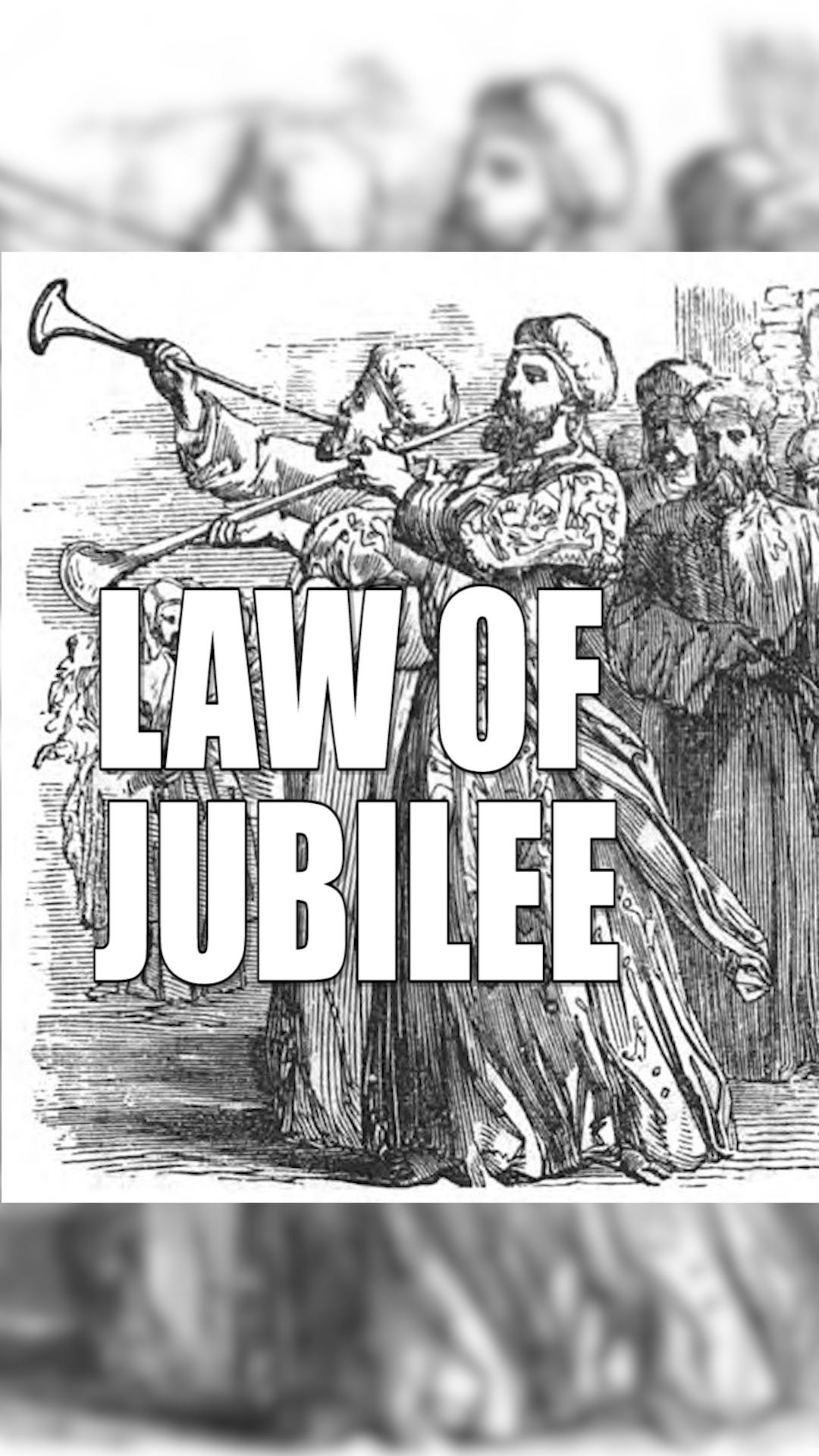This is a repost from last Christmas Eve. This Christmas I would like to say that I am thankful to all of you for subscribing to my Substack. I would especially like to thank those of you who showed your support financially. It really means a lot to me, especially when it seems like nobody has any extra money for anything these days. Thank you. The year 2025 has great promise for change. Believe me when I tell you I have plenty more to say. Until then, let’s make them pay.
Speaker of the House Mike Johnson says the Bible is his worldview. I sure hope that means he’s about to start canceling our debts, because, according to the Bible, that was the first thing Jesus ever talked about.
This Christmas, let's celebrate Jesus the debt-canceling economic radical.
Plenty of modern evangelicals will come at you with the line that Jesus somehow supported capitalism. That's hogwash, and not just because capitalism wouldn't exist for another 1500 years. He was ahead of his time, but not like that.
Both Matthew and Mark talk about the homicidal reaction Jesus got when he preached in his hometown of Nazareth. But only Luke (4:14) tells us the words that sparked that anger. Luke describes this event as Jesus's very first public act.
It goes like this. Jesus goes to the temple in his hometown of Nazareth. There he unrolls the scroll of Isaiah and reads
“The Spirit of the Lord is upon me, for he has anointed me to bring Good News to the poor. He has sent me to proclaim that captives will be released, that the blind will see, that the oppressed will be set free, and that the time of the Lord’s favor has come.”
According to the story, it was a mic drop moment, everyone sat in stunned silence. With all eyes on Jesus, he said, “The Scripture you’ve just heard has been fulfilled this very day!” … then an angry mob ran him out of town and tried to chuck him off a cliff. No joke, look it up.
The significance of Jesus choosing this particular passage of scripture as his show-stopping homecoming number cannot be overstated. The meaning of what Jesus was saying would have been quite clear to an ancient audience, yet has lost all context for a modern reader. When Jesus proclaimed that the “year of the Lord’s favor” had returned, he was saying the time for Jubilee had finally come. That particular passage in Isaiah, read by Jesus, is a specific reference to Leviticus 25 and the Law of Jubilee.
So, what was the Law of Jubilee? Stay with me here… The Torah begins with a very clear understanding that all land and wealth ultimately belong to God. Human beings are just temporary stewards who have to share God’s blessings and must return everything to Him every 49 years. The ancient Hebrews operated on a seven-year schedule where in the seventh year no land was tilled. After a series of seven blocks of seven, the 49th year was to be the Year of Jubilee when all slaves would be freed, all debts would be canceled, and all land was to be returned to the control of the priests and redistributed amongst the original families who had it in the time of Joshua. A property’s value was based on the length of time between Jubilees.
Now, there is a common problem for modern readers of the Bible or any ancient document in perceiving the difference between literal and figurative language. Frequently there are multiple ways of interpreting the same text. Even Jesus dealt with this. When a Pharisee asked Jesus the secret to eternal life (Luke 10:25), Jesus replied first: What does the Torah say? Then: How do you interpret it?
A lot of the time if you hear about the year of Jubilee at Sunday school or during a sermon the reverend will say that Jesus was being metaphorical, talking about a figurative slate cleaning or washing of sin when one decides to follow Jesus or becomes born again. There’s nothing inherently wrong with that interpretation. But to a person sitting in that crowd in Nazareth 2,000 years ago, the words of Jesus would have meant something very concrete. They would have hit a lot differently.
Within the historical context of that time, what Jesus was saying would have been startling. Everybody already knew what the Torah said about redistributing the land. The property codes of Leviticus supposedly went back to the time of Moses (though in reality were probably rewritten during the Babylonian exile about 600 years before). By the time Jesus showed up in Nazareth no one alive could remember a Year of Jubilee ever happening.
As Reverend Howard Bess writes, “the combination of Roman rule, compliant fat-cats and religious elites made observance of Jubilee impossible.” During a Jubilee, the rich were supposed to give up their land so the poor could have a shot at being productive members of society. By the time of Jesus, the poor had given up on that ever happening again, despite the clear language in those holy legal documents. Jesus was like, “Yo, it says it right here. Why aren’t we doing this?”
Everyone who heard what Jesus said would have understood its meaning: It had been far too long since a year of Jubilee... it was time to shake up the Etch-a-Sketch and give the poor their shot. Cancel all the debts and start over. This message is frequently interpreted symbolically today, but within historical context such a suggestion would have had very real economic implications for those living at that time. To come into the temple and start talking about redistributing land from the rich and giving it to the poor would have been an outrage to the entrenched interests in Nazareth. So it’s no surprise Jesus was run out of town for saying that.
But it makes me think of what House Speaker Mike Johnson just told Fox News last month. He said, "I am a Bible-believing Christian. Someone asked me today in the media, they said, ‘… People are curious. What does Mike Johnson think about any issue under the sun?’ I said, well, go pick up a Bible off your shelf and read it – that’s my worldview. That’s what I believe and so I make no apologies for it.”
I think that means that Mike Johnson is ready to start canceling debts like Jesus wanted to do. Sounds great to me! I think people should start confirming that's what he meant because I bet it would be pretty popular.
If the Bible truly informs Mike Johnson’s worldview, he should declare a jubilee on our debts. It was literally the first thing Jesus wanted to talk about when he started preaching. We should listen. Thanks, Jesus!
Please give a like, follow, favorite, and sign up for my free Substack for more detail in every post.
Merry Christmas to all and let us make them pay.





















Share this post